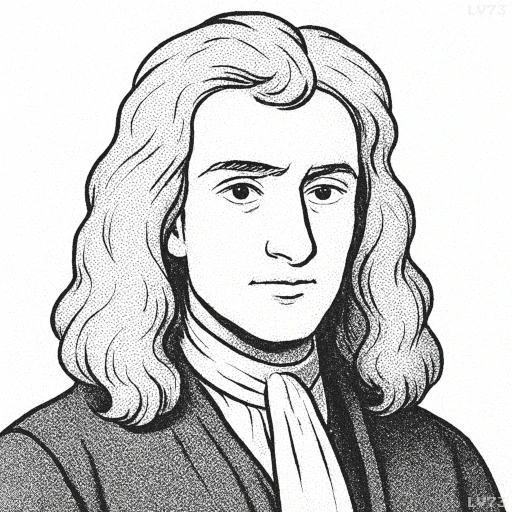“We are certainly not to relinquish the evidence of experiments for the sake of dreams and vain fictions of our own devising; nor are we to recede from the analogy of Nature, which is wont to be simple and always consonant to itself.”

- January 4, 1643 – March 31, 1727
- Born in England (UK)
- Natural philosopher, mathematician, physicist, astronomer, theologian
table of contents
Quote
“We are certainly not to relinquish the evidence of experiments for the sake of dreams and vain fictions of our own devising; nor are we to recede from the analogy of Nature, which is wont to be simple and always consonant to itself.”
Explanation
In this quote, Isaac Newton emphasizes the importance of relying on empirical evidence and experimentation in science, rather than giving in to speculation, unverified theories, or fanciful ideas. Newton is warning against allowing personal biases or unsubstantiated hypotheses to overshadow the objective findings of experiments. He stresses that true scientific understanding comes from observing and testing the natural world, not from inventing ideas that are disconnected from the evidence. Additionally, Newton underscores the need to remain consistent with the analogy of nature—the principle that nature operates according to simple, universal laws that are coherent with each other, and that science should strive to uncover these laws in their most elegant and understandable form.
Newton’s view reflects the essence of the scientific method, which emphasizes observation, experimentation, and the formulation of theories that align with natural phenomena. He is advocating for a rational, methodical approach to science, in which the complexity of nature is understood not through conjecture, but through systematic investigation. This statement also highlights Newton’s belief in the simplicity and order of nature, a view that he articulated in his work on the laws of motion and gravitation, where he showed that seemingly complex phenomena could be explained by a few universal principles.
In modern science, Newton’s insistence on adhering to the evidence of experiments and the analogy of nature remains foundational. The emphasis on empirical research and the principle of simplicity—often referred to as Occam’s razor, which suggests that the simplest explanation is usually the best—continues to guide scientific inquiry. Whether in physics, biology, or chemistry, the scientific method still relies on experimentation and the careful application of theory to explain natural phenomena, just as Newton advocated centuries ago. His insistence on grounding scientific knowledge in evidence and logic remains a key aspect of modern scientific practice.
Would you like to share your impressions or related stories about this quote in the comments section?
